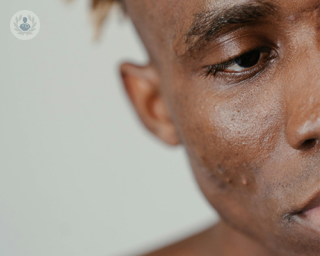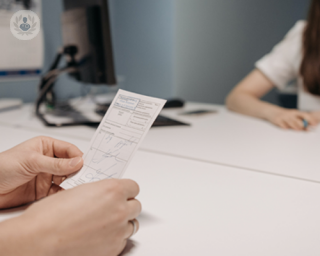Chlamydia
Mr Ibrahim Bolaji - Obstetrics & gynaecology
Created on: 11-30-2017
Updated on: 10-24-2023
Edited by: Conor Lynch
What is chlamydia?
Chlamydia is one of the most common sexually transmitted diseases (STDs) caused by bacteria. It is passed from one person to another through unprotected sex and is particularly common in sexually active teenagers and young adults. Most people with chlamydia do not notice any symptoms and do not realise that they have it.

What causes chlamydia?
Chlamydia is caused by sex without the use of a condom and unprotected oral sex. Penetration is not the only way to catch chlamydia as the touching of the genitals together may transmit the bacteria.
Chlamydia can also be passed on during anal sex. It can also spread if infected semen or vaginal fluid gets into the eye, although this is less common. Infected pregnant women can also pass this onto her baby.
What are the symptoms of chlamydia?
Symptoms of chlamydia for women can include:
- pain when urinating
- unusual discharge from the vagina
- pain the in stomach
- blood during or after sex and bleeding in between periods
- In some women, the infection can spread to the fallopian tubes, which may cause pelvic inflammatory disease (PID).
Men may experience:
- unusual discharge from the penis
- pain and swelling in the testicles
How do I get tested for chlamydia?
When seeing a doctor about chlamydia, they will ask about the patient’s symptoms. If the patient does not have any symptoms they will ask how they think that they have been exposed to chlamydia.
To be diagnosed with chlamydia, women will be swabbed in the vagina and men are tested through a sample of their urine. If there is chance of an infection in the anus or throat then these areas may be swabbed also. A physical examination by a nurse or a doctor is not always necessary.
Anyone can have a free and confidential chlamydia test as a sexual health clinic, a genitourinary medicine clinic or at a GP surgery. People under the age of 25 in England can also get tested by the National Chlamydia Screening Programme (NCSP). This is often found in pharmacies or colleges.
There are also chlamydia home-testing kits although the accuracy of these tests vary.
What is the treatment of chlamydia?
Chlamydia is easy to treat. The bacteria is treated with a course of antibiotics. Some tablets are required to be taken all in one day, or there is a longer course of capsules to take for a week.
Patients are advised not to have sex during treatment time as if they are exposed to chlamydia again the infection will reoccur even if the previous infection has been treated.
It is important that both partners in the relationship are tested and treated to stop the spread of the infection.
How can I prevent chlamydia?
A person is most likely at risk of chlamydia if they have a new sexual partner. It is highly recommended that a condom is used every time during vaginal, anal and oral sex. Sex toys should not be shared and if they are, they should be washed and covered with a new condom.








